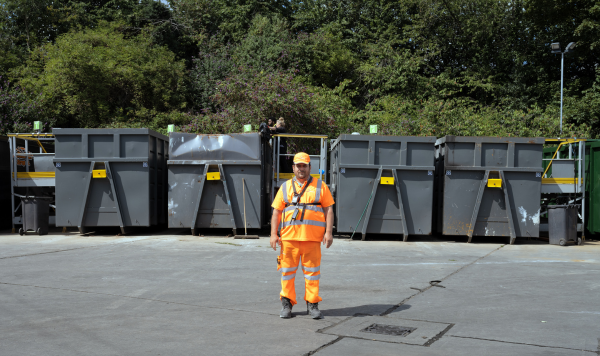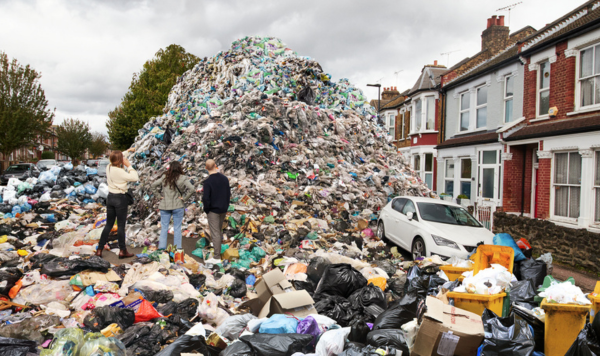At NLWA we believe the government can and should be doing more to improve waste management and promote a circular economy in the UK. It is government that has the power to incentivise green business practices and investment, make it easier for individuals to waste less, and support local authorities to manage waste better. Here at NLWA we have repeatedly called on government to prioritise waste management and circular economy reforms, but unfortunately we have seen many crucial programmes and reforms abandoned or delayed at the expense of our environment.
On this page we have outlined some of the specific actions we would like to see central government take. But perhaps above all, the most important thing is that the government improve their consultation with us and other local authorities. As the organisations responsible for implementing policy at the local level, we are best placed to advise on what will be effective. We urge the government to listen to our advice and offer greater consultation on waste management reforms in future.
With this in mind, our Call to Action sets out what we believe the government should do, as a priority.
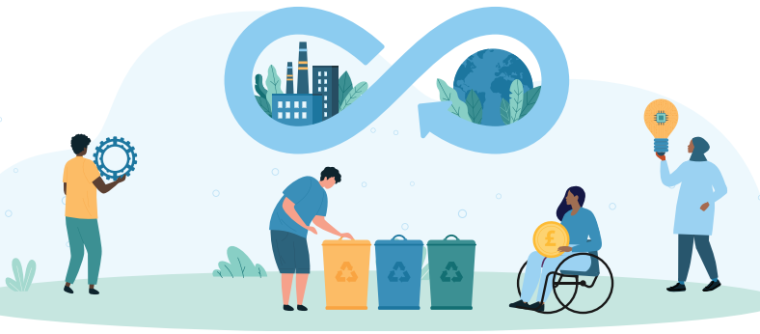
Create an ambitious long-term roadmap to make a step change in waste reduction
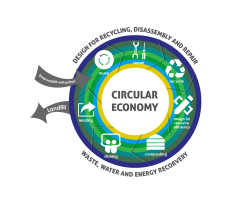
It is positive that the long-awaited collection and packaging reforms are being enacted, but beyond 2028 there is a dearth of activity. The creation of the Circular Economy Strategy provides a valuable opportunity to address this and make an ambitious step change in the way waste and resources are managed in the UK.
- The government must create a Circular Economy Strategy with long-term ambitions. It should adhere to the principles of the waste hierarchy – prioritising waste reduction, then reuse, repair before recycling and disposal - and address a broad range of problematic materials.
- Both new and existing policies should consider the invaluable role of local authorities in waste management. The government must provide councils with appropriate financial resource to ensure they can implement policies successfully.
Invest in domestic recycling and reprocessing capacity
Invest in domestic recycling and reprocessing capacity NLWA aims to process our recycling within the UK wherever possible. Yet we cannot achieve our targets in full because of a lack of domestic infrastructure and reprocessing capacity for key materials such as paper, cardboard, cartons and soft plastics. Without intervention, councils risk collecting recyclable materials that cannot be processed, resulting in disposal by incineration or landfill. This issue will only worsen as the Collection and Packaging Reforms are predicted to increase the volume of materials collected for recycling.
- Government should carry out a review of recycling infrastructure and develop a strategy setting out interventions to support investment and increase UK reprocessing capacity.
Make the emissions trading scheme (ETS) fair and effective
The climate emergency demands carbon reduction across all sectors. However, expanding the ETS to include energy-from-waste (EfW) facilities will impose significant financial strain on local authorities while failing to effectively decarbonise waste. Local authorities have limited control over the volume and content of waste they manage. Yet as it stands, the ETS could act as an “end-of-pipe” tax on councils, potentially adding £35 million annually to waste disposal costs for north London residents, forcing tax hikes or cuts to essential services.
- Instead, the cost burden of the ETS must be passed on to producers who are responsible for the fossil carbon in waste, rather than make local authorities foot the bill through the proposed mechanism. We believe this will be the most effective way to incentivise the decarbonisation of waste through the scheme.
- If local authorities must be exposed to ETS liabilities, it is imperative that the government protect them from these costs through new funding and the creation of a comprehensive waste decarbonisation strategy.
- Should neither of these options be available, the government must either delay the inclusion of EfW in the ETS or exclude local authority waste from the scheme altogether.
Enhance battery regulations to ensure safe disposal
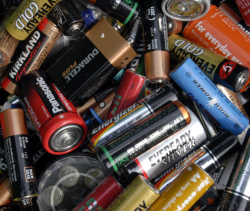
Lithium-ion batteries are ubiquitous, but their growth in popularity has been accompanied by an increase in battery fires in the waste stream. In north London alone, the number of battery fires doubled between 2023 to 2024. With financial, societal and environmental impacts, it is imperative that the government take urgent action to encourage consumers to dispose of these batteries safely, both to prevent fire and preserve valuable resources. We will call for the ultimate phase out of single use, disposable household batteries, but in the meantime, the government should enhance the existing producer responsibility regime to:
- Cover the cost of kerbside battery collection, recycling and the cost of fire.
- Replace generic battery recycling targets with meaningful chemistry specific targets for each battery type.
- Introduce a producer levy based on the recycled content of batteries placed on the market.
Legislate to reduce the environmental impact of absorbent hygiene products
Absorbent hygiene products (AHPs) including nappies, period products and incontinence pads are essential to us all. While NLWA takes steps to encourage the use of reusable alternatives, AHPs continue to be a challenging material to manage, constituting 9% of our residual waste—35,000 tonnes annually— and costing £3.2m to dispose of. These items contain fossil-based plastics, contributing to carbon emissions when incinerated.
- We will call on the government to reduce AHP waste and minimise the impact of its disposal through policy mechanisms which encourage the use of reusables, support the recycling of disposable AHPs and incentivise the design of effective, environmentally friendly products.


